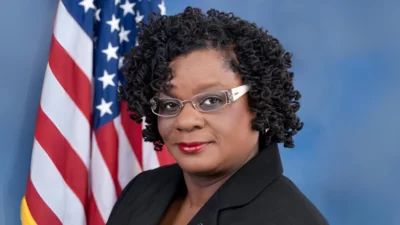Dr. Keith P. Posley Superintendent at Milwaukee Public Schools | Official website
Dr. Keith P. Posley Superintendent at Milwaukee Public Schools | Official website
Lessons in math, science, and Native culture combined with educational trips around Milwaukee filled summer days for a group of MPS Native students. They participated in the first in-person College Access Bridging Program organized by MPS’s First Nations Studies.
The program prepared middle school students for the First Nations Studies College Access Program, which they enter upon starting high school. The bridging program ran four days a week for seven weeks, from June 24 to August 8.
Seventeen students attended classes two days each week at the Southeastern Oneida Tribal Services offices on the south side. On the other two days, they took field trips to places such as Discovery World, the City of Milwaukee’s urban stables, and Mequon Nature Preserve to extend their learning.
Alyssa Mussa, Act 31 teacher for First Nations Studies, described the College Access Bridging Program as “getting a taste for College Access, in the most fun way.” Wisconsin Act 31 mandates that all public school districts teach students about the history, culture, and tribal sovereignty of Wisconsin’s 11 federally recognized Native tribes and nations.
The bridging program provided new experiences while reinforcing classroom lessons and preparing students for high school. The First Nations Studies’ College Access Program supports students throughout high school by providing tutoring, motivating them to graduate on time, and helping them plan for life after high school through visits to colleges and universities and career exploration.
First Nations Studies uses a culturally relevant curriculum called Expanding the Circle that promotes transitioning from high school to college. It also exposes students to Native culture and languages.
During the bridging program, students received cultural education as well. They learned beadwork from a visiting Native artisan, plant identification and traditional uses from a Native plant expert, and traditional dances and regalia from an Ojibwe dance troupe.
Rebecca Webster was one of the visiting instructors during the bridging program. Webster runs Ukwakhwa farm and educational center with her husband on the Oneida Nation Reservation near Green Bay. They specialize in heirloom varieties of corn, beans, and squash grown by the Haudenosaunee or Six Nations Indigenous peoples of northeastern North America.
Webster demonstrated how Native people traditionally processed corn and gave each student hands-on experience. She taught them how to make Oneida cornbread called kanʌstóhale̲ — not baked but boiled with a dumpling-like texture. Students formed portions of dough mixed with fresh blueberries into vivid blue cornbread served with blueberry-maple syrup sauce.
Students also learned traditional cornmeal processing using oversized mortars and pestles to pound dried corn kernels into meal. Sections of yellow-birch tree trunks were used as mortars; these were partially hollowed out with cavities burned inside to combine ash with cornmeal for added nutrition.
Webster emphasized that education is central to her farm's mission: “to help our community regain knowledge that was lost,” she said. This mission aligns closely with that of First Nations Studies.
Richanda Kaquatosh, Supervisor of First Nations Studies noted another goal fulfilled by the bridging program: “It is important for our Native children to come together and build their own community... That’s why it is important for First Nations Studies to create these opportunities and connections for our children.” She highlighted that Native students attend more than 140 MPS schools.
Families of Milwaukee Public Schools high school students who identify as Native can register their children online for the College Access Program by First Nations Studies.






 Alerts Sign-up
Alerts Sign-up